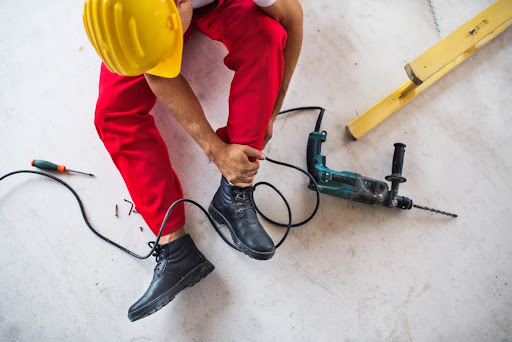Hand and power tools play a major role in a construction worker’s ability to carry out their job-related tasks efficiently and effectively. Drills, saws, sanders, grinders, welding torches, and compressors are commonly used on construction sites. However, no matter how familiar a worker is with these types of tools, serious injuries can arise if safety precautions are not followed or the equipment is defective.
Hand tool and power tool injuries can be catastrophic and result in the need for extensive medical treatment and time lost from work. If you were hurt in a hand or power tool accident on a construction site, you may be entitled to file a claim for Workers’ Compensation benefits. You might also be able to pursue a personal injury claim if a third party’s negligence was to blame.
Accidents and Injuries Caused by Hand and Power Tools
Tools are used in every phase of a construction project — and they can be extremely dangerous. Construction workers must be provided with proper training and adequate safety gear to protect them from all work-related hazards, including those involving hand and power tools. Critically, lack of safety guards on tools, failure to provide protection, and inadequate training are common reasons injuries arise.
Depending on the circumstances surrounding the accident, hand and power tool injuries can include:
- Broken bones
- Eye injuries
- Burns
- Electrocution
- Crush injuries
- Lacerations
- Amputation
- Paralysis
- Fatality
Not only can hand and power tool injuries cause a construction worker to undergo extensive medical treatment, but they can also result in time lost from work. In severe cases, hand and power tool accidents can cause permanent damage or lasting disability.
Liability and Damages for Hand and Power Tool Accidents
Federal OSHA guidelines and New York State Labor Law set forth specific safety standards that must be followed when operating hazardous tools and machinery. Although a construction worker cannot sue their employer if they’ve been injured in a tool-related accident due to Worker’s Compensation laws, there may be a third party who can be held liable. For example, in many cases, a general contractor, subcontractor, or property owner may have been negligent. A manufacturer might also be held accountable under a theory of products liability if the tool that caused the injury had a design defect or manufacturing flaw.
Construction workers injured in hand and power tool accidents have crucial legal rights and may be entitled to recover their damages in a personal injury action based on a third party’s negligence. In addition to recovering their economic losses in connection with unreimbursed medical bills, lost wages, and out-of-pocket costs — they may also obtain compensation for their pain and suffering.
Additionally, if the accident resulted in fatality, a construction worker’s family may be eligible to receive Workers’ Compensation Death benefits — and monetary recovery in a wrongful death lawsuit if a third party should be held responsible for the accident. Monetary recovery in a wrongful death action is limited to the economic losses incurred by the construction accident victim’s family. However, compensation may be awarded in a survival action for the pain and suffering the victim experienced due to their injuries prior to their death.
Contact an Experienced New York Personal Injury Attorney
If you are a construction worker who was injured at a job site due to someone else’s negligence, you may be able to file a personal injury action to recover your economic and non-economic losses. The Dearie Law Firm, P.C. has over 30 years of experience fighting for the rights of injured construction workers and obtaining favorable results in their cases.
The Dearie Law Firm, P.C. has convenient office locations in Manhattan, Brooklyn, and the Bronx, as well as mobile locations serving Brooklyn, Queens, Manhattan, the Bronx, Staten Island, Westchester, Rockland County, Nassau County, and Suffolk County. Contact us today for a consultation.

